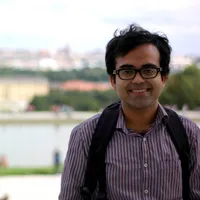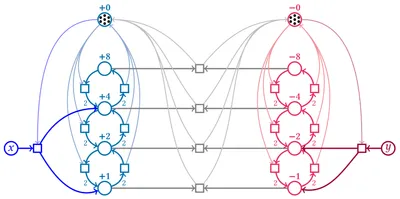Computer Science News
New EPSRC award to support combating caller ID spoofing

Professor Feng Hao (PI) from the Department of Computer Science and Dr Adrian von Mühlenen (co-I) from the Department of Psychology have been awarded an EPSRC grant on “End to End Authentication of Caller ID in Heterogeneous Telephony Systems”. This project will support a research fellow and a senior research fellow in computer science, each for four years, to explore new ways to stop caller ID spoofing without requiring globally trusted authorities, in collaboration with researchers from the Department of Psychology. This project will also aim to develop impacts by engaging with the telecommunication industry via the project partners: Huawei, Truecall, and RedTone.
The award of this project coincided with the announcement in March 2020 by the Federal Communications Commission (FFC), who proposed mandating the adoption of STIR/SHAKEN for all telecom providers in the US in order to stop the caller ID spoofing scams. However, STIR/SHAKEN requires globally trusted authorities, which have been known to be difficult to manage. As opposed to the top-down approach by the FCC, this EPSRC project aims to take a bottom-up approach to develop more effective and more deployable solutions without relying on any globally trusted third parties.
A University press release on this project can be found here.
CRUK award to Dr Fayyaz Minhas for early detection of cancer
Dr Fayyaz Minhas of the Tissue Image Analytics (TIA) lab at the Computer Science department is a co-PI on a £97K grant by Cancer Research UK’s Early Detection Committee to explore machine learning for discovery of pre-neoplastic signature in mesothelioma. He will be working closely with the PI Dr Jan Lukas Robertus, who is a Senior Consultant Cardiothoracic Pathologist at the Royal Brompton Hospital. Dr Minhas will lead on the machine learning and computational pathology side of the project.
MRC funding success for Dr Yulia Timofeeva
 We are happy to announce that Dr Yulia Timofeeva from the department's Applied Computing research theme has been awarded a Medical Research Council grant to develop a modelling framework and computational tools for studying synaptic transmitter release in health and disease. The £475K project will run in close collaboration with the laboratory of Professor Kirill Volynski at the UCL Queen Square Institute of Neurology as well as other world-leading experimental laboratories in Europe, USA, Canada and Japan, specialising in state-of-the-art research in synaptic transmission.
We are happy to announce that Dr Yulia Timofeeva from the department's Applied Computing research theme has been awarded a Medical Research Council grant to develop a modelling framework and computational tools for studying synaptic transmitter release in health and disease. The £475K project will run in close collaboration with the laboratory of Professor Kirill Volynski at the UCL Queen Square Institute of Neurology as well as other world-leading experimental laboratories in Europe, USA, Canada and Japan, specialising in state-of-the-art research in synaptic transmission.
EPSRC funding success for Dr Sayan Bhattacharya
 We are pleased to report that Dr Sayan Bhattacharya from the Theory and Foundations research theme at the Computer Science Department has received an EPSRC New Investigator Award. This will allow him to lead a research project on the theory and applications of dynamic algorithms. The approximately £250K project will aim to develop new techniques to design algorithms for fundamental optimisation problems in a setting where the input data changes over time.
We are pleased to report that Dr Sayan Bhattacharya from the Theory and Foundations research theme at the Computer Science Department has received an EPSRC New Investigator Award. This will allow him to lead a research project on the theory and applications of dynamic algorithms. The approximately £250K project will aim to develop new techniques to design algorithms for fundamental optimisation problems in a setting where the input data changes over time.
The proposal was ranked top at its funding prioritisation panel, and the reviewers said:
The intended research explorations are of very high quality and will likely make a substantial impact on the research community; and possibly on the industrial sector.
UKRI Future Leaders Fellowship awarded to Dr Tom Gur
 We are delighted to report that Dr Tom Gur has been awarded a Future Leaders Fellowship on Foundations of classical and quantum verifiable computing, funded by £892K from UK Research and Innovation. Professor Artur Czumaj, the head of the department's Theory and Foundations research theme, has commented:
We are delighted to report that Dr Tom Gur has been awarded a Future Leaders Fellowship on Foundations of classical and quantum verifiable computing, funded by £892K from UK Research and Innovation. Professor Artur Czumaj, the head of the department's Theory and Foundations research theme, has commented:
We congratulate Tom and look forward to hosting this exciting project that he will lead. This prestigious award confirms the high international standing of research at Warwick in theoretical computer science and its rich interfaces with other fields.
Tom’s Future Leaders Fellowship is concerned with algorithms and cryptographic protocols, both in the classical and quantum settings, and their applications to blockchain technology and delegation of computation to the cloud. This research programme is inherently interdisciplinary, involving fundamental research at the intersection of computer science, pure mathematics, and quantum physics.
The vision that this project aims to achieve is to develop new and exciting mathematical tools and to capitalise on their power to the end of pushing the frontiers of verifiable computing; providing new methodologies for meeting the challenges imposed by big data and the societal need for decentralised systems.
Best Paper Award at STOC 2019
 The contribution The Reachability Problem for Petri Nets is Not Elementary by Wojciech Czerwinski, Slawomir Lasota, Ranko Lazic, Jerome Leroux and Filip Mazowiecki has won a Best Paper Award at the 51st Annual ACM Symposium on the Theory of Computing, to be held on June 23-26, 2019 in Phoenix, AZ.
The contribution The Reachability Problem for Petri Nets is Not Elementary by Wojciech Czerwinski, Slawomir Lasota, Ranko Lazic, Jerome Leroux and Filip Mazowiecki has won a Best Paper Award at the 51st Annual ACM Symposium on the Theory of Computing, to be held on June 23-26, 2019 in Phoenix, AZ.
This work, which was supported by a Leverhulme Research Fellowship, shows that the central verification problem for Petri nets is much harder than has been known since the landmark result of Richard Lipton in 1976. Petri nets, also known as vector addition systems, are a long established model of concurrency with extensive applications in modelling and analysis of hardware, software and database systems, as well as chemical, biological and business processes.
Facebook Fellowship awarded to Jeremias Knoblauch
Jeremias Knoblauch, a second year PhD student supervised by Dr. Theo Damoulas (Warwick CS & Stats), has been selected as the first graduate student based in the UK and as one of only 21 graduate students worldwide to receive the Facebook Fellowship award.
